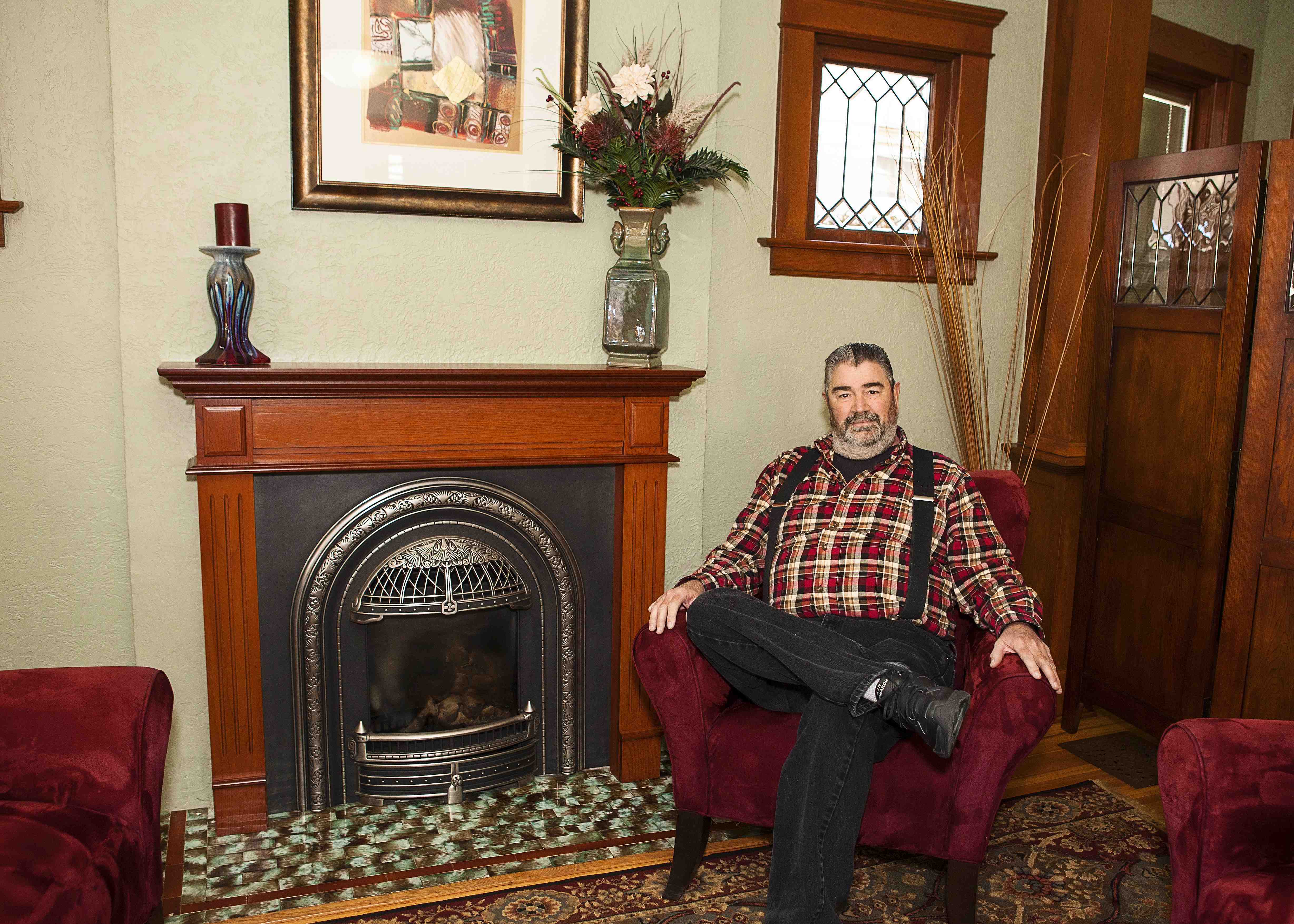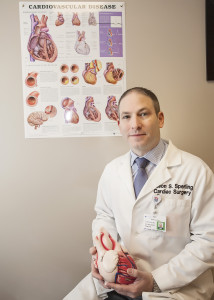Calming the beat | by

HealthONE breaking ground with treatments to fight A Fib,
Four years ago, Jay Phillips rarely strayed from his couch. Brain fog and fatigue kept the Denver resident from doing anything active with his family, as uncontrolled atrial fibrillation was damaging his heart. At age 60, Phillips had already turned his business over to his daughter, at times not sure if he was going to live. So when his cardiologist suggested they try a treatment against the odds, he was ready.
“Within three days, I felt a lot better,” Phillips says. “I had more energy. My mind started working better. This summer, I re-landscaped my whole yard.” Because of his persistent A Fib, Phillips’ chances of success with the catheter ablation, a treatment used for patients in earlier stages, were below 50 percent.
But now, with the recent launching of HealthONE’s Rocky Mountain Heart Rhythm Institute, Phillips and others with advanced or persistent A Fib will have access to the most innovative treatment options available (some not yet offered elsewhere in the Western United States), with more reliable results than ever before. And statistics suggest the new program joins the Denver landscape at a prime time.
Filling a void
A Fib, which increases with age, is diagnosed in nearly 3 million Americans today, a number predicted to quadruple in the next 30 years as baby boomers grow older, according to the Heart Rhythm Society. “Yet many people are being denied treatment because of a lack of education among both doctors and patients,” says Dr. Jason Sperling, who recently came to Denver to head this and other new HealthONE Cardiovascular Specialty Programs. “And the longer you wait, the harder it’s going to be to treat.”
With the new program, HealthONE A Fib patients will gain access to treatment they’ve been missing and to truly advanced care, says Dr. Vijay Subbarao, Phillips’ cardiologist at Rose Medical Center. “It gives them a single program with multiple, highly-specialized experts under one roof that they can tap for knowledge and a broad range of treatments,” says Subbarao, who was instrumental in forming the Rose branch of the system-wide institute.
Cutting-edge care
Sperling, who joined Denver’s HealthONE from New Jersey, brought a groundbreaking technique with him, becoming the first to perform this new procedure in the Rocky Mountain region this fall. Called hybrid ablation, the advanced procedure uses a specialized interdisciplinary team, including cardiac surgeons and electrophysiologists, to treat persistent A Fib patients who have either failed other treatments or who have no other realistic options.
With A Fib, abnormal electrical signals emanating from the pulmonary vein regions cause a rapid and irregular heartbeat. “It decreases the heart’s efficiency and is a major risk factor for stroke,” Sperling says. A Fib can also lead to blood clots, heart failure and other complications. Medications to slow the heart, decrease blood pressure and thin the blood are a first-line of defense. If that fails, a catheter-ablation procedure, such as Phillips’, can interrupt the abnormal electrical signals, with electrophysiologists “spot-welding” or freezing trigger points in and around the pulmonary veins.
But if A Fib is left to progress, the affected heart chamber can enlarge along with the pulmonary veins, making it more difficult to ablate those problem areas and creating a different type of A Fib, Sperling says. “Eventually, eccentric scarring in the back wall of the atrium seems to create a hyper-conductive electrical circuit that sustains the A Fib even if the veins themselves can be treated,” he says.
With hybrid ablation, surgeons use a video-approach to the heart through a very small incision in the abdomen. “A specialized device that ablates the entire back wall of the left atrium, hopefully irreversibly rendering it incapable of conducting electricity, is used,” Sperling says. “Then the electrophysiologist treats (or re-treats) the veins or other problem areas.” The success rate has been about 85 percent, which Sperling calls “unheard-of for this population.”
While recurrence is always a possibility with any A Fib treatment, hybrid ablation, with patients up to three years out, has proved lasting, Sperling says. “These folks typically have very poor quality of life: exercise intolerance, fatigue, shortness of breath, emotional issues, to name just a few. Our patients were very grateful to have found our program,” Sperling says.
Phillips understands, having suffered all of those life-altering side effects. He hopes the new program will help others find help sooner. “It was really depressing. I thought I was going to die,” says Phillips, who has decided to refocus and enjoy his forced early retirement. “But now, I have a new outlook on life.”
A Fib prevention tips
Adopt healthy habits, such as:
- Managing high blood pressure
- Avoiding excessive amounts of alcohol and caffeine
- Not smoking
- Maintaining a healthy weight
Be proactive about related conditions, such as:
- Sleep apnea
- Thyroid disease
- Diabetes
- Chronic lung disease
- Other heart conditions
Source: American Heart Association
Did you know?
Because of a higher risk of stroke with atrial fibrillation, certain patients should take potent blood thinners. But for those who cannot, Rose Medical Center now offers a groundbreaking procedure called the LARIAT™. Using minimally-invasive techniques, a team of doctors uses the LARIAT™ Suture Delivery Device to close off a region of the heart known to cause blood clots and reduce the risk of stroke.
Tags: Rose Medical Center, The Medical Center of Aurora
Leave a Comment
Please be respectful while leaving comments. All comments are subject to removal by the moderator.

